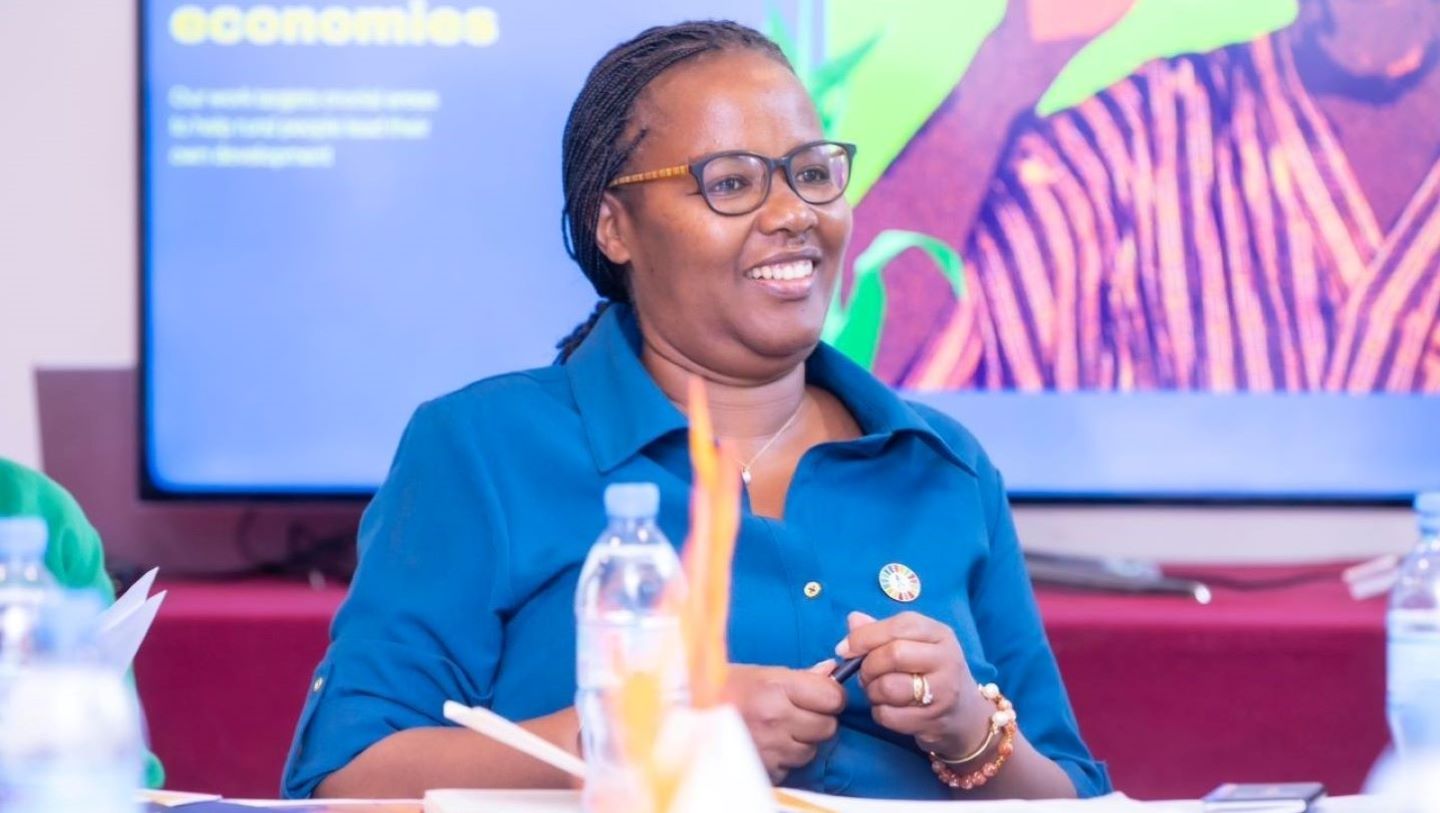Four questions with IFAD’s new Vice-President
IFAD Asset Request Portlet
Asset Publisher
Four questions with IFAD’s new Vice-President
Estimated reading time: 2 minutes
We sat down with IFAD’s new Vice-President, Gerardine Mukeshimana, to pick her brain about her past experience and what she hopes to achieve in her new role.
Before this appointment, you were the Rwandan Minister for Agriculture. What difference did you see IFAD make to the lives of rural people in Rwanda?
IFAD and the Government of Rwanda have been working closely on a number of projects across livestock, crops and post-harvest management for several years.
I saw first-hand how, as productivity, irrigation and access to markets improved, so too did the lives of rural people. They used their increased income to buy health insurance, improve their housing and send their children to school. These are the knock-on effects you get when you invest in sustainable and inclusive agriculture.
The Climate-Resilient Post-Harvest and Agribusiness Support Project was particularly successful. We partnered with Africa Improved Foods to produce nutritious food grown by small-scale farmers. In seven years, post-harvest loss of maize was reduced by almost 72 per cent, while farmers’ income improved significantly.
Climate change and biodiversity loss are dangerously intensifying. What is the role of the global community in accelerating action and channelling resources to developing nations?
Climate change commitments do not yield results unless every single country works to fulfil them. It’s high time world leaders prioritize climate change adaptation.
When you look at how agriculture is affected by floods, by droughts, by crop and livestock diseases, the impact is really alarming—especially for small-scale farmers who have contributed the least to climate change. And yet, few financing facilities target these farmers.
My goal is to advocate for them. It is critically important that every nation works to address climate issues to alleviate the suffering of the most vulnerable people. We need global governance reforms to put rural people at the centre and ensure they have a say in the decisions that affect them.
What do you think are the quickest wins to transform rural communities and livelihoods?
The quickest wins are in agriculture. When it comes to reducing poverty, investing in agriculture is up to three times more effective than non-agricultural investment. So, to alleviate rural poverty, we must sustainably improve agriculture and access to markets.
Once you have more production and access to markets, other sectors also benefit, including agro-processing and food associated services. If we get agriculture right, the rest will follow.
Rwanda stands out globally for its efforts in advancing gender equality and women's empowerment. As IFAD's first African woman Vice-President, do you hope to spotlight intersectionality at IFAD and beyond?
This is an issue everyone should be looking at, not just IFAD.
What women need, first and foremost, is knowledge. We must equip them with the training and skills they need to succeed. We also need to provide them with access to resources, including land and financial services.
I’m proud that IFAD’s projects have a gender lens and focus on women, but we need to amplify this as we’ve yet to reach where we want to be. If we empower and support women, the whole world benefits.
Publication date: 03 October 2023